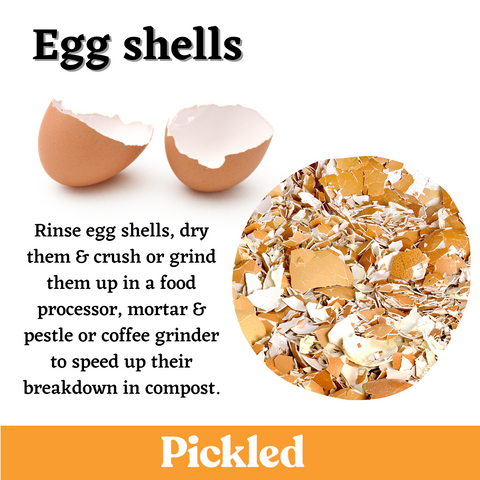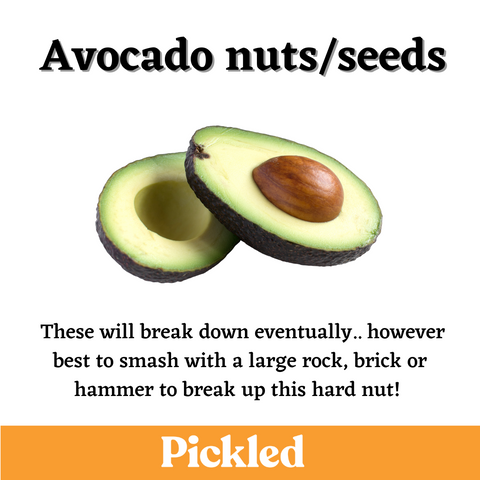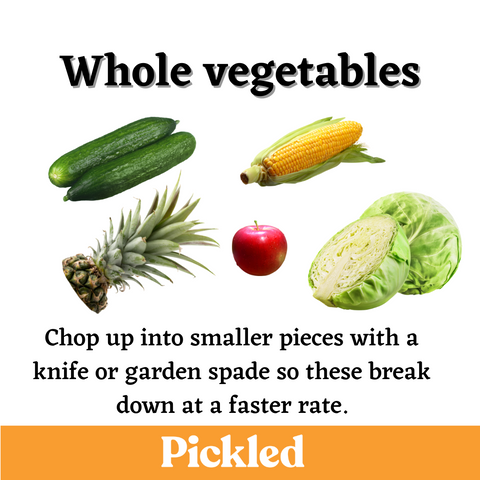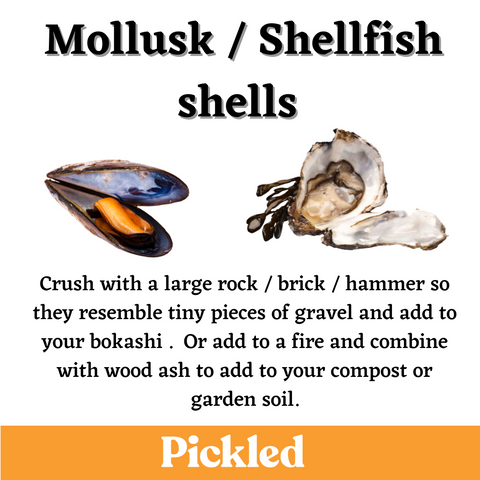Because these items are designed to not break down easily (for instance egg shells are made of calcium carbonate that’s strong enough to protect the yolk inside), it means they need special attention.
Check out the tips below on how to break down these specific foods.
In general try to chop or smash anything bigger than your fist and the more surface area you create the better! 🔪✨🎉

Eggs shells may look delicate enough to break down in compost however their calcium levels make them surprisingly difficult. Instead of adding to compost whole - rinse egg shells, dry them & crush or grind them up in a food processor, mortar & pestle or coffee grinder to speed up their breakdown in compost.

Avocado nuts/seeds and their pith will break down eventually, however best to smash the nut or seed with a large rick, brick or hammer to break up this hard nut.

The best way to optimise the nutrient value of bones + shells is to use them for bone broth & then pickle the scraps! If cooked for 24-48 hours or more - red meat, fish & poultry bones will soften and/or disintegrate, making it easier to break down in your compost.
For utilising crayfish (or lobster) shells, check out Tora Collective's crayfish bisque recipe.

Vegetables with a high fibre content are hard to break down when composted whole. Best to chop up into smaller pieces with a knife or garden spade so these break down at a faster rate.

These have important nutrients such as magnesium, manganese, iron, and boron, which are all important for plant growth. Crush with a large rock / brick / hammer so they resemble tiny pieces of gravel then add to your bokashi and/or compost.
